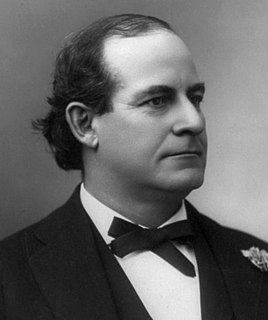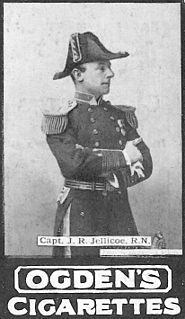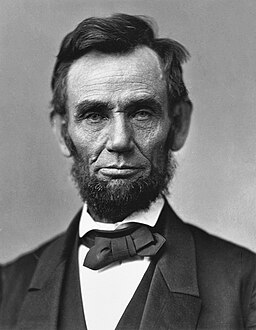
The United States presidential election of 1900 was the 29th quadrennial presidential election, held on Tuesday, November 6, 1900. In a re-match of the 1896 race, Republican President William McKinley defeated his Democratic challenger, William Jennings Bryan. McKinley's victory made him the first president to win consecutive re-election since Ulysses S. Grant had accomplished the same feat in 1872.
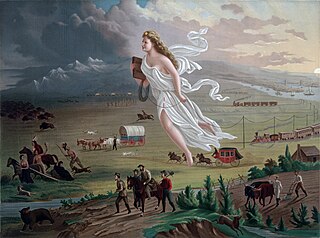
In the 19th century, manifest destiny was a widely held belief in the United States that its settlers were destined to expand across North America. There are three basic themes to manifest destiny:
The Treaty of Paris of 1898 was a treaty signed by Spain and the United States on December 10, 1898, that ended the Spanish–American War. In the treaty, Spain relinquished all claim of sovereignty over and title to Cuba, and ceded Puerto Rico, Guam, and the Philippines to the United States. The cession of the Philippines involved a compensation of $20 million from the United States to Spain. The Treaty of Paris came into effect on April 11, 1899, when the documents of ratification were exchanged.

American imperialism is the term for a policy aimed at extending the political, economic, and cultural control of the United States government over areas beyond its boundaries. Depending on the commentator, it may include military conquest, gunboat diplomacy, unequal treaties, subsidization of preferred factions, economic penetration through private companies followed by intervention when those interests are threatened, or regime change.

The Newlands Resolution was a joint resolution passed on July 4, 1898 by the United States Congress to annex the independent Republic of Hawaii. In 1900, Congress created the Territory of Hawaii. It was drafted by Congressman Francis G. Newlands of Nevada, a Democrat. Annexation was a highly controversial political issue along with the similar issue of the acquisition of the Philippines in 1898.
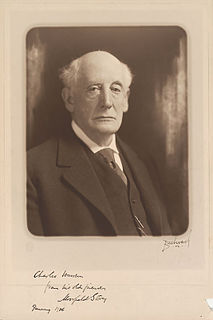
Moorfield Storey was an American lawyer, anti-imperial activist, and civil rights leader based in Boston, Massachusetts. According to Storey's biographer, William B. Hixson, Jr., he had a worldview that embodied "pacifism, anti-imperialism, and racial egalitarianism fully as much as it did laissez-faire and moral tone in government." Storey served as the founding president of the National Association for the Advancement of Colored People (NAACP), serving from 1909 to his death in 1929. He opposed United States expansionism beginning with the Spanish–American War.

Not to be confused with World Anti-Imperialist League of Comintern

George Louis Wellington was a Republican member of the United States Senate, representing the State of Maryland from 1897 to 1903. He also represented the sixth district of Maryland in the U.S. House of Representatives.

The White Man's Burden: The United States and the Philippine Islands (1899), by Rudyard Kipling, is a poem about the Philippine–American War (1899–1902), which exhorts the U.S. to assume colonial control of the Filipino people and their country.

Edward Atkinson was an economist, inventor, and a founder of the American Anti-Imperialist League.
The 1900 Democratic National Convention was a United States presidential nominating convention that took place the week of July 4, 1900, at Convention Hall in Kansas City, Missouri.
"To the Person Sitting in Darkness" is an essay by American humorist Mark Twain published in the North American Review in February 1901. It is a satire exposing imperialism as revealed in the Boxer Uprising and its aftermath, the Boer War, and the Philippine–American War expressing his anti-Imperialist views. It mentions the historical figures Emilio Aguinaldo, William McKinley, Joseph Chamberlain, William Scott Ament and others, and fueled the Twain–Ament indemnities controversy.
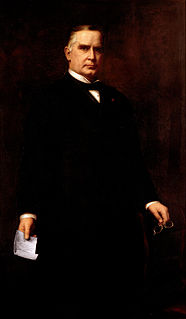
The presidency of William McKinley began on March 4, 1897, when William McKinley was inaugurated and ended with his death on September 14, 1901. He is best known for leading the nation to victory in the Spanish–American War, taking ownership of Hawaii, purchasing the Philippines, Guam and Puerto Rico, restoring prosperity, and promoting pluralism among all groups. It includes the 1897 Dingley Tariff to protect manufacturers and factory workers from foreign competition, and the Gold Standard Act of 1900 that rejected free silver inflationary proposals. Rapid economic growth and a decline in labor conflict also marked the presidency.

A People's History of American Empire is a 2008 graphic history by Howard Zinn, Mike Konopacki, and Paul Buhle. The book combines material from Zinn's history book A People's History of the United States and his autobiography You Can't Be Neutral on a Moving Train with new material from other sources, most notably George Lipsitz's A Rainbow at Midnight: Labor and Culture in the 1940s and Jim Zwick's Mark Twain's Weapons of Satire: Anti-Imperialist Writings on the Philippine-American War. Various historic subjects are covered as well as Zinn's own history of involvement in activism and historic events. The book was the last of Zinn's books that was published within his lifetime.
Gerald Horne is an African-American historian who currently holds the John J. and Rebecca Moores Chair of History and African American Studies at the University of Houston.
This bibliography of William McKinley is a comprehensive list of written and published works about or by William McKinley, 25th President of the United States.

The 1900 United States presidential election took place after an economic recovery from the Panic of 1893 as well as after the Spanish–American War, with the economy, foreign policy, and imperialism being the main issues of the campaign. Ultimately, the incumbent U.S. President William McKinley ended up defeating the anti-imperialist William Jennings Bryan and thus won a second four-year term in office.
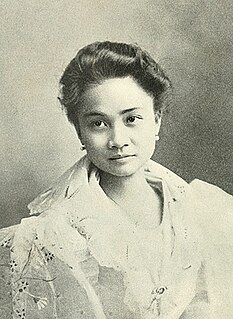
Clemencia López was a Filipina activist involved in the movement for Philippine independence. López was born into a wealthy Filipino family, and many of her siblings were also notable activists in the struggle for Philippine independence. In 1901, López set out on a nearly two-year journey across the United States, petitioning for the freedom of three of her brothers who had been imprisoned by the American military in the Philippines. Throughout her stay in the United States, López drew attention to the Philippine independence movement, became the first Filipina to ever enter the White House, and spent time studying at Wellesley College. López returned to the Philippines in 1903 where she spent the remainder of her life campaigning for both Philippine independence and encouraging women to take on a greater role in public life.
